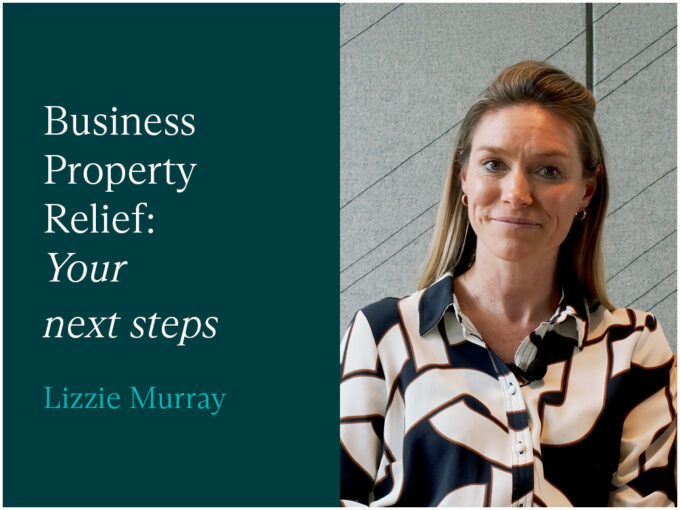We often think of philanthropy in the context of ultra-high-net-worth individuals with high profile charities, but in reality the spectrum is much broader – and so are the tax breaks. In this article we take a look at the various tax-efficient gifting options available in the UK.
One-off and regular donations
Most people will have made one-off or regular donations to a UK charity and be familiar with the concept of Gift Aid. The Gift Aid scheme allows an individual to donate to qualifying charities a sum that is net of basic rate income tax relief, with the charity then able to reclaim the basic rate tax direct from the government. A £1 donation is therefore worth £1.25 to the charity.
Donations qualify for Gift Aid if the donor has paid enough UK tax for the year. This will be the case provided the donations are not more than four times the taxpayer’s UK tax liability for the year. The tax can be either income tax or capital gains tax (CGT).
Higher and additional rate taxpayers can reclaim the difference between the basic rate tax claimed by the charity and the higher or additional rate tax paid from HM Revenue & Customs (HMRC). For example, for a £1,000 donation, the charity would receive £1,250 and a higher rate taxpayer could claim further tax relief of £250. It’s also possible to carry back current year donations to the previous tax year in order to accelerate the tax relief.
Gifts to charities are exempt from inheritance tax (IHT), so regular charitable donations can be an effective way of reducing the value of an individual’s estate for IHT purposes, but without the adverse IHT implications usually associated with making gifts.
Spring Budget 2023 – restrictions to relief
Historically, certain European Economic Area (EEA) charities qualified for Gift Aid. However, with effect from 15 March 2023 the definition of a charity has changed, and now only UK charities are eligible for relief. For a transitional period, it will still be possible to claim relief for donations made to EEA charities recognised as such by HMRC prior to 15 March 2023. However, with effect from 1 April 2024 the ability to claim relief on donations to EEA charities will end. During the transitional period, you should be careful to check the status of an EEA charity before making a donation, assuming you wish to claim tax relief.
Payroll giving
Some employers offer payroll giving schemes, through which charitable donations are deducted from an employee’s gross salary before tax. This can be an effective way to donate regularly and removes the need for higher and additional rate taxpayers to claim tax relief through their tax returns. It also removes the administrative burden for the charity of claiming Gift Aid.
Gifts of quoted shares and land
If a taxpayer gifts quoted shares to a UK charity, they’ll usually be able to deduct the market value of the shares, plus any costs of transfer, from their taxable income for the year. The gift will also be exempt from CGT, making this a particularly valuable relief. This relief can also apply to a gift of land, buildings or qualifying artwork.
Charitable legacies
A death estate is usually subject to IHT at 40%. However, charitable legacies are exempt from IHT and can be acquired tax-free.
Where an individual leaves 10% of their net estate to a registered UK charity, the IHT rate on the rest of the estate reduces to 36%. It’s possible to draft their will to ensure that the conditions for this relief are met. This may be of interest to those who intend to leave a significant charitable legacy in their will.
Donor Advised Funds
Donor Advised Funds (DAF) are becoming increasingly popular as philanthropic giving vehicles, often encompassing many tax-efficient giving options under one umbrella.
DAFs are funds administered by a registered charity, allowing individuals to make a donation, receive immediate tax relief, and advise on how they’d like their donation applied.
The account running responsibilities, including due diligence to confirm the charitable purpose and Gift Aid status of the intended beneficiaries, lies with the DAF. Therefore, DAFs can significantly reduce the administrative burden of philanthropic giving for an active or frequent donor.
Donors can use a variety of assets to fund their DAF, such as cash, shares, land and artwork. DAFs can also assist those who are dual taxpayers in securing tax relief on donations in more than one jurisdiction, for example in the UK and US. This flexibility and personalisation has contributed to the increasing popularity of DAFs as giving vehicles.
DAFs can be an effective alternative to setting up a charitable foundation, as the donor can simply open a DAF account named after themselves or their family, or alternatively remain anonymous.
Setting up a charitable foundation
If you’re looking to pursue philanthropic activities on a larger scale, you may consider setting up your own charitable foundation.
A potential drawback of setting up and running a charitable foundation is that it can be labour-intensive, so this option may be better suited to those wishing to commit more time to philanthropic causes, or who already have a private or family office available to undertake the day-to-day running of the charity.
Alternatively, Saffery has teams dedicated to providing these services on your behalf, and could help to remove some or all of the administrative burden.










